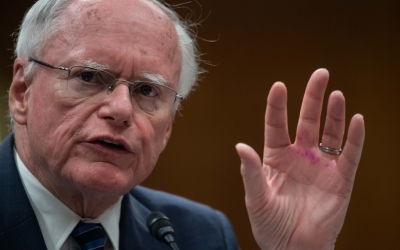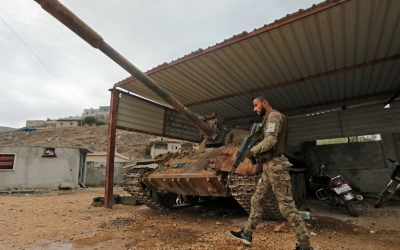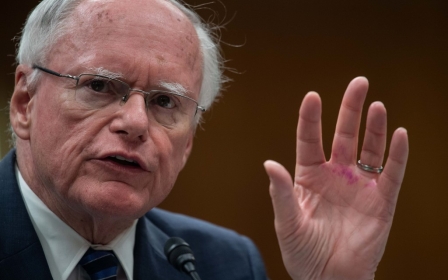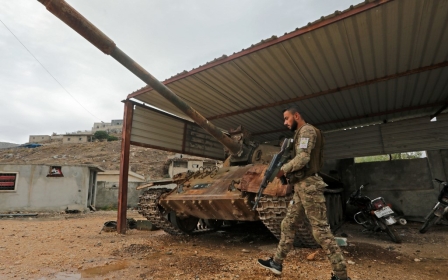Syria's foreign minister Walid al-Muallem dies at 79
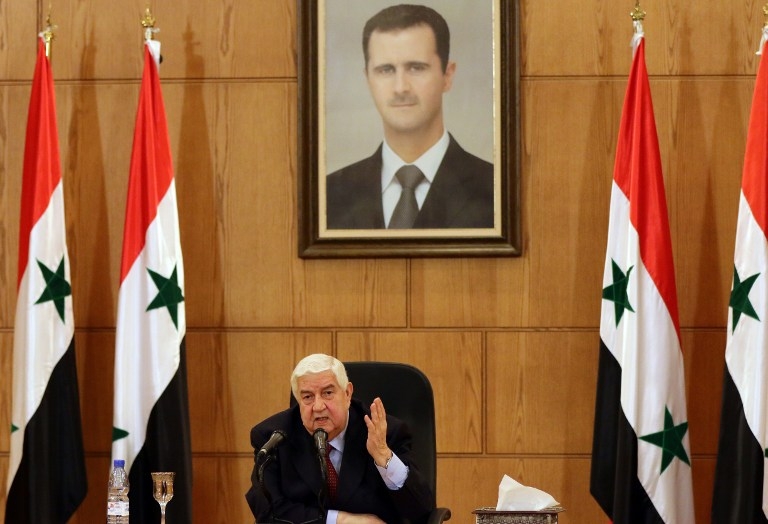
Syria's long-time foreign minister, Walid al-Muallem, a staunch defender of Syrian President Bashar al-Assad's bloody crackdown on peaceful protesters that sparked a decade old conflict, died on Monday, the government has said.
There were no details on the cause of death, but the 79-year old had been in poor health for years with heart problems.
New MEE newsletter: Jerusalem Dispatch
Sign up to get the latest insights and analysis on Israel-Palestine, alongside Turkey Unpacked and other MEE newsletters
His last public appearance was at the end of last week in Damascus for the opening of a conference on refugee returns. He looked weak and was helped into the hall by two men, AFP reported.
In press conferences, he was known for his mocking stances against the West, which he accused of conspiring to start Syria's conflict.
A source close to the Syrian government said it was expected his deputy, veteran diplomat Faisal Mekdad, would replace him as foreign minister.
"This is very sad news. I have lost a very close friend in the Arab world," Russia's TASS news agency quoted Mikhail Bogdanov, Russia’s deputy foreign minister, as saying.
"He was a reliable partner, a very knowledgeable person, diplomat and politician."
Decades of foreign service
Muallem, a father to three children, was first appointed foreign minister in 2006 and was also a deputy prime minister.
During more than half a century in the foreign service, he held posts in Tanzania, Saudi Arabia, Spain and the United Kingdom, among other countries.
He was appointed ambassador to Romania in 1975, five years after Bashar al-Assad's father Hafez came to power.
Muallem was Syria's envoy in Washington throughout the 1990s and also led Damascus' unsuccessful peace talks with Israel during that same period.
"He was known for his honourable patriotic positions," the government said in a statement, adding he died at dawn and would be buried later on Monday in Damascus.
During his time in office, Muallem saw his country tilt further towards Iran and Russia, which have helped shore up Assad's rule and allowed the authoritarian leader to regain most of the territory he once lost in the civil war.
'One of Hassan Nasrallah's soldiers'
Muallem, born in 1941 to a Sunni family from Damascus, publicly defended Moscow and Shia Iran's growing military role, backed by its proxies in Syria, which many Syrian opponents of Assad labelled as an occupation and blamed for fuelling sectarian tension in a Sunni-majority country.
"I am ready to be one of Hassan Nasrallahʹs soldiers," Muallem said in August 2006, referring to the leader of the Iranian-backed movement Hezbollah, which has in recent years sent thousands of its members to fight alongside Assad's forces.
Assad's opponents branded him a traitor for supporting the violent crackdown on protesters at the beginning of the conflict in 2011, when thousands took to the streets calling for an end to the Assad family's decades-old authoritarian rule that later erupted into a full-scale civil war.
"No government in the world can accept an armed terrorist group, some of them coming from abroad, controlling streets and villages in the name of 'jihad'," Muallem said in a 2012 newspaper interview.
Muallem accused the US and others in the West of fuelling his country's unrest in a conflict in which more than half a million people have been killed and more than 5.6 million have become refugees.
The diplomat recently attacked the Caesar Act - the toughest US sanctions yet against Damascus - which came into force in June, saying they were meant to starve Syrians.
He vowed that his country would get economic help from Iran and Russia to soften its blow, Reuters reported.
Washington says the goal of the new sanctions is to hold Damascus to account for war crimes and deter it from further pursuing the war. The sanctions exempt humanitarian aid.
Middle East Eye delivers independent and unrivalled coverage and analysis of the Middle East, North Africa and beyond. To learn more about republishing this content and the associated fees, please fill out this form. More about MEE can be found here.


